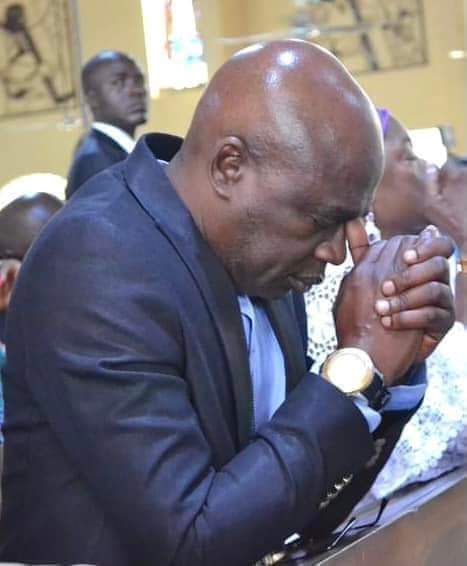By Morgan Adikwu
In what can only be described as a dark day for democracy, the local government elections held on October 5, 2024, in Benue State have left a bitter taste in the mouths of the electorate. The elections, conducted by the Benue State Independent Electoral Commission (BSIEC) under the leadership of its newly appointed Chairman, Mr. Richard Tombuwua, have been widely condemned by various media outlets, civil society groups, and political analysts as a complete sham.
Governor Hyacinth Alia, a man of the cloth, is at the center of this growing storm of controversy. As a supposed Catholic priest, the expectation was that Governor Alia would uphold the highest standards of integrity and morality. Yet, the reality of his political career has been anything but. Instead of embodying the virtues of honesty and fairness, his administration has been marred by allegations of corruption, political manipulation, and indifference to democratic principles, as seen in the sham local government elections, which he has been accused of shamelessly defending.
His endorsement of the local government elections as credible, despite overwhelming evidence of fraud and electoral malpractice, raises serious concerns about his sincerity and moral compass. A priest, sworn to serve in the temple of God, has shamelessly presided over an election that many have described as one of the most disgraceful in the state’s history.
Moreover, the integrity of BSIEC’s new chairman, Mr. Richard, has come under intense scrutiny. His rapid appointment before the elections appeared to set the stage for the political catastrophe that unfolded. His lack of a strong track record and apparent willingness to serve as a tool for political manipulation only confirmed fears that his appointment was part of a grand scheme.
Further compounding the issue is the 6.6 billion naira earmarked for the elections, which has become another point of contention. Many are questioning whether the funds were ever disbursed and, if so, how they were used. A thorough audit of BSIEC’s financial records is now necessary to determine whether these public funds were used appropriately, or whether they lined the pockets of political actors intent on hijacking the democratic process.
Governor Alia’s administration has been criticized not only for the sham elections but also for its broader pattern of political indiscipline. His governance style has increasingly mirrored that of autocratic rulers, where power is concentrated in the hands of a few, and dissent is met with suppression. His disregard for party structures and his endorsement of a process that disenfranchised the people of Benue is a testament to his insincerity.
The Senate’s condemnation of the elections, led by Senator Abba Moro and Senator Titus Zam, only further highlights the need for urgent electoral reforms. In their motion, the senators called on the federal government to withhold allocations to local governments where leaders were appointed rather than elected. This unprecedented move speaks to the gravity of the situation in Benue and the wider ramifications for democracy in Nigeria.
There is a deep irony in the fact that a man of God now finds himself at the center of one of the most blatant acts of electoral deceit in Nigeria’s recent history. Governor Alia’s role in these events not only betrays the trust of the people who elected him but also casts a long shadow over his religious and moral authority. His failure to distance himself from the fraudulent conduct of the elections, and his administration’s complicity in the manipulation of the process, speak volumes about the state of governance in Benue.
In the wake of this electoral disaster, several steps must be taken to restore faith in the democratic process. First, an independent audit of the 6.6 billion naira approved for the election must be conducted, with particular attention paid to how the funds were disbursed and spent.
Second, BSIEC’s role in the conduct of the elections must be thoroughly investigated, and those responsible for undermining the electoral process must be held accountable.
Finally, the broader issue of local government elections in Nigeria must be addressed, with a growing consensus that the Independent National Electoral Commission (INEC) should be empowered to conduct these elections.
The credibility of local governance in Nigeria is at stake, and without immediate reforms, the cycle of electoral deceit will continue to undermine the foundations of democracy. Governor Alia’s administration must be held to account, and the people of Benue deserve better than the sham that was presented to them on October 5, 2024.
As the dust settles on what can only be described as a political catastrophe, the people of Benue and Nigeria at large must demand better from their leaders. Governor Alia’s administration has shown that political power, when unchecked, can be wielded with reckless abandon, to the detriment of the very people it is meant to serve. It is time for true reform, and for accountability to take center stage. Until then, the stain of this electoral travesty will linger, casting a shadow over the integrity of governance in Benue.
Related Article
Alia’s Obsession with LG Funds: Roots Cause of Benue APC War
